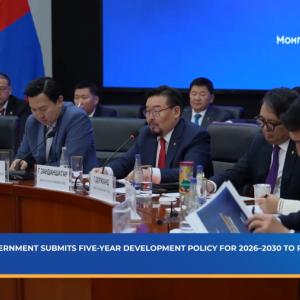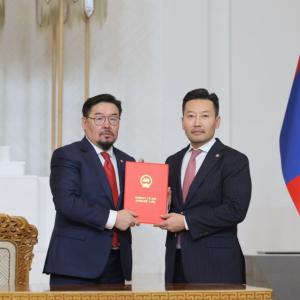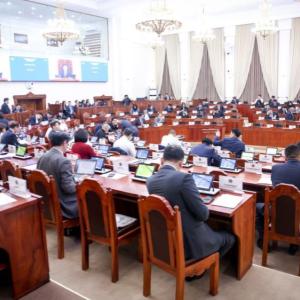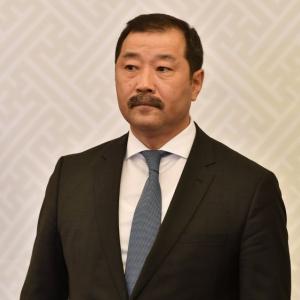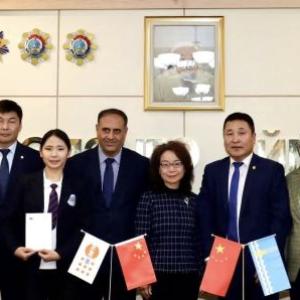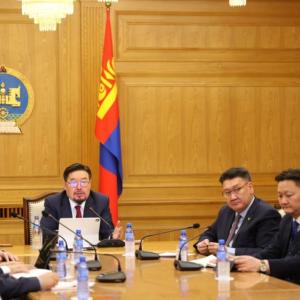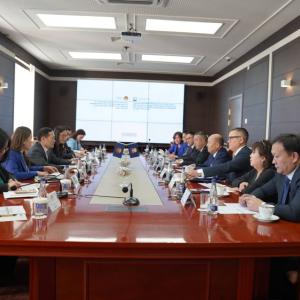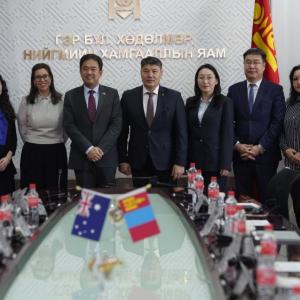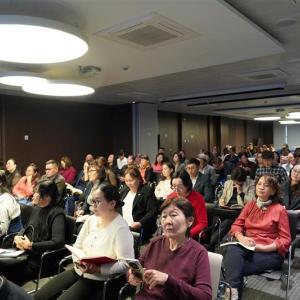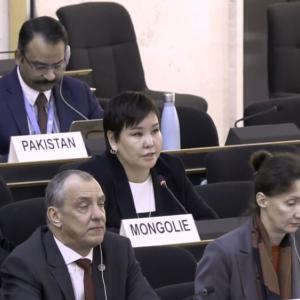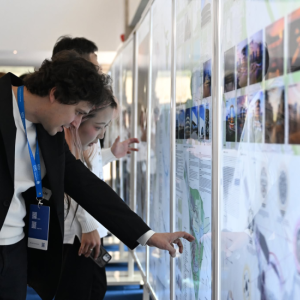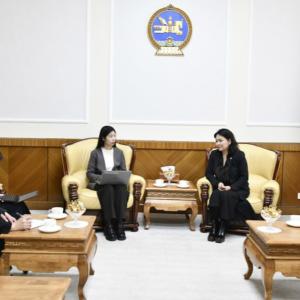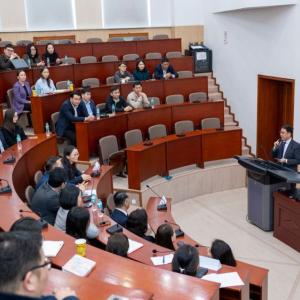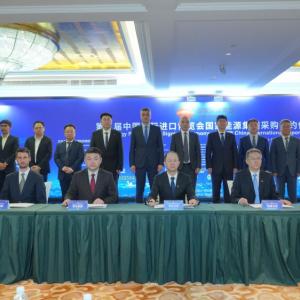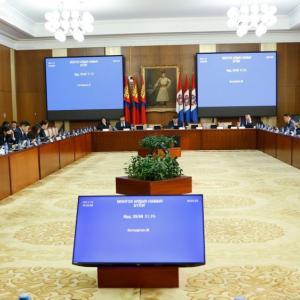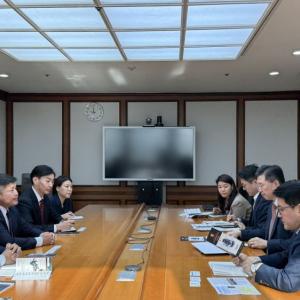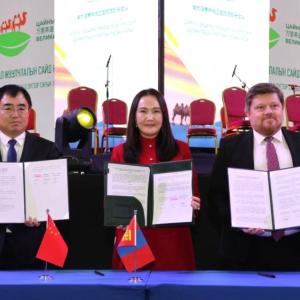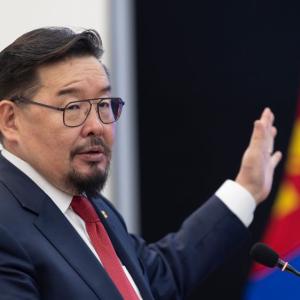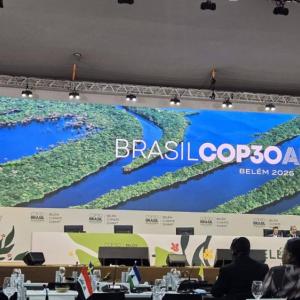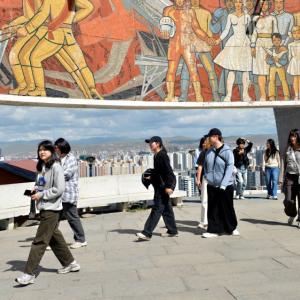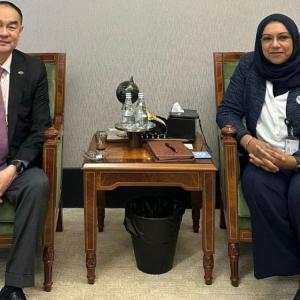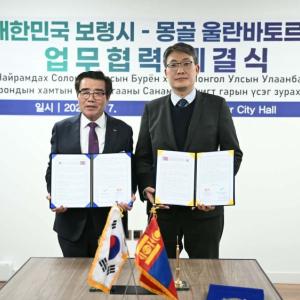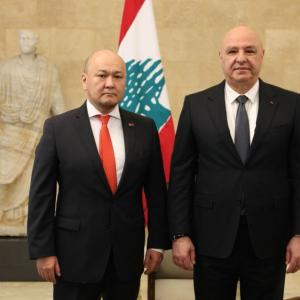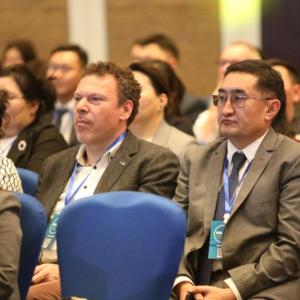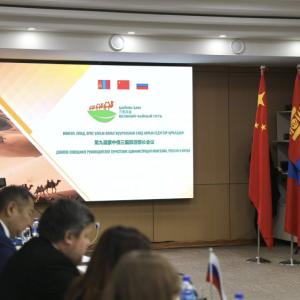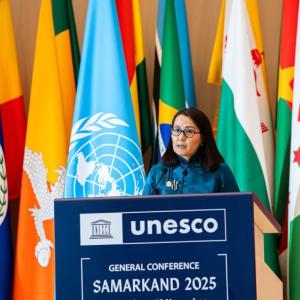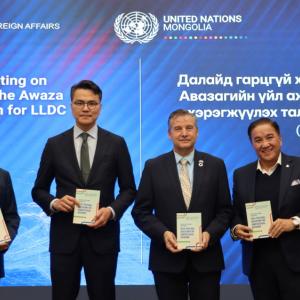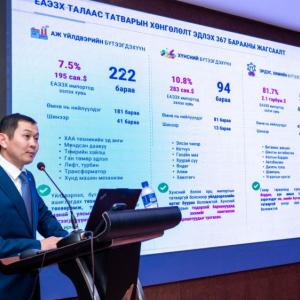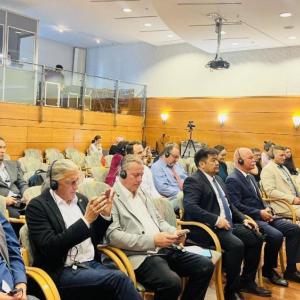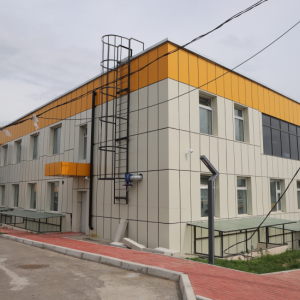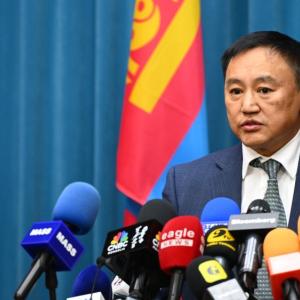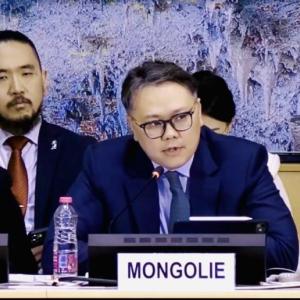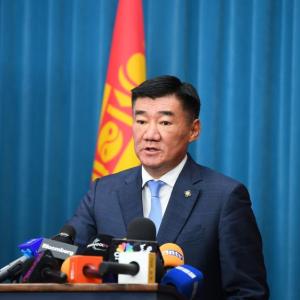“Mongolia is on the same level as developed countries for its development of IT and communications sector”
The Mongol Messenger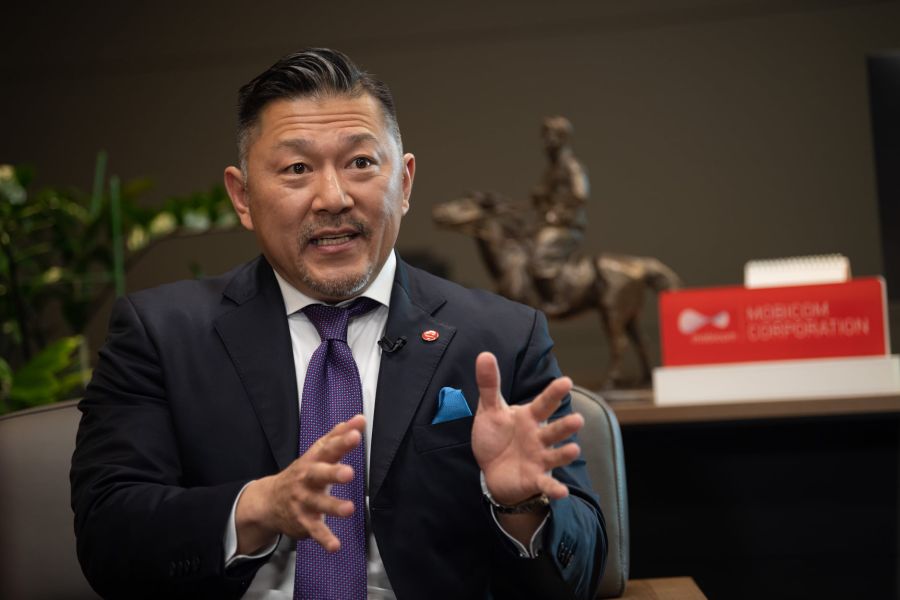
Ulaanbaatar /MONTSAME/. With the recent
completion of his six-year appointment, Chairman of the Board of Directors of
Mobicom Corporation LLC Tatsuya Hamada will soon be returning to his home
country. While living in Mongolia and serving as the company’s director for
over the last six years, he closely spent time with the country itself and its
people. In recognition of his contributions to the development of the country’s
communications sector and socio-economic development, Mr. Tatsuya Hamada was
awarded with the Order of the Polar Star, the highest state honor of Mongolia,
as according to a decree issued by former President Kh.Battulga in May 2021.
Furthermore, per the decision made by the Government, he was also appointed as
Tourism Envoy of Mongolia and presented a certificate of envoy by Minister of
Environment and Tourism B. Bat-Erdene last March. Thus, we took an interview
from Mr. Tatsuya Hamada before he returned to Japan.
-Congratulations for
being appointed as Tourism Envoy of Mongolia. What were your first impressions
when you first came to Mongolia?
-I first came to Mongolia six years ago. The image I had in
my mind at the time was those often found in travel photography books–a small
boy with rosy cheeks standing in front of his cows, sheep, and horses. The
moment I got off the plane, however, I was very shocked to find out that
Ulaanbaatar city was entirely different from what I had expected. It was a
large modern city with many tall buildings. Although I indeed looked at the
country from the business sector’s perspective, I have a quite clear memory of
the moment when I learned about the significant development of mining
businesses and the sector of communications and IT at the time.
-You worked in our
country’s communications sector for six years, which is not that short of a
time. How do you see the sector’s development in Mongolia? Could you also tell
us about what you think development trends will be like in the future?
-I would first like to talk about how it has been at Mobicom. When I came to Mongolia six years ago, the 3G network was most commonly found in the country. 4G was introduced in Mongolia from 2016. And now, we are holding talks on introducing 5G services. The 4G network was introduced in Japan from around November to December in 2011, while it was after 4-5 years that it was introduced in Mongolia. As for 5G, while it was introduced around March to April last year in Japan, it is currently expected to be introduced here in Mongolia by the end of this year. Like so, the development of Mongolia’s communication sector is nearly on the same level as those in Japan. I believe it is a great achievement.
As Mobicom’s 4G network
has been introduced nationwide, in 330 soums of all 21 aimags, people began to
use data to access the internet from their mobile phones. Smartphone usage has
increased to about 85 percent from 43 percent six years ago. This is a
considerably high statistic compared to the rest of the world. Mongolia is on
the same level as developed countries for its development of the information
and communications sector despite not being considered as an economically
developed country.
-You've just mentioned
that Mongolia is on the same level as developed countries for its development
of the IT and communications sector. What do you think will become more
important in order to further develop this sector?
-The use of various applications is increasing as daily
usage of smartphones rapidly grow. I believe that the spread of the coronavirus
has changed our lifestyle and the business environment through countermeasures
such as lockdowns, which served as an impetus for the introduction and
development of a variety of applications. Slight changes have also been made to
certain functions of Mobicom Group's ‘MONPAY’ mobile application, and
introduced in other countries. KDDI Corporation, a major shareholder of
Mobicom, highly commends Mobicom's capabilities to develop applications - and
talks and negotiations are underway on placing outsourcing orders in the near
future. This means that not only Mobicom, but also Mongolia's information
technology sector is becoming world-class and recognized internationally. I am
confident that it will continue to make progress non-stop. In the near future,
I believe that the IT sector will reach to the level where it is considered as
important as the mining and tourism sectors in the country.
-Personally, I think
that the field that "shined" the most during the COVID-19 pandemic
has been the sector of information technology. Could you please give a few
words to youth who are looking to work in this field?
-From 2017 to 2022, I used to voluntarily organize a certain activity called ‘Mobicom Class’. During those times, I was often asked questions such as, "I want to join Mobicom in the future, what should I do?" or "Now that I am studying this field, do you think I should continue to go with this career path?" My answer to these types of questions is "Will you be deciding your future life with what you have learned at the university?"
There are many young Mongolians studying abroad and acquiring MBAs and PhDs, but it is also important to talk about the future of what we can do after joining the specific company, rather than telling the entirety of what they have done in the past. It takes four years to study at a university, and six years if you decide to continue to study for a master's degree, but the most important thing to keep in mind is how long you expect to work for the company. In other words, the future depends on much more than this. So I would like to tell them not to decide the next 30 years of their life with just these 4-6 years. Although I think I have become specialized in this field to some extent due to being in the industry for 25 years, my university major was European history. However, I have no regrets about my major, and it was after joining the company that I learned all my current business skills, knowledge and know-how.
-Let me change the subject
for a moment and ask you about your appointment as a Tourism Envoy. Is there
anything you have in mind for the promotion of Mongolian tourism in Japan?
-In this era, it is possible to become acquainted with Mongolia through guidebooks, unlimited social media, and YouTube videos. However, I was given the opportunity to deeply experience it with my own five senses. I want to pass on to the Japanese people what I perceived when I saw it with my own eyes and heard it with my ears, such as the sounds of horses and the smell of grasslands. Prior to the pandemic, direct flights between Japan and Mongolia were conducted daily, which took about 5 to 6 hours with no issues. Thus, I want to introduce the Japanese people to how they can experience the natural beauty and formation that is not found in Japan. Mongolians are very hospitable people. There were many times I was able to experience this great hospitality, which gave me such an incredible feeling that I cannot describe with words.
On top of this, I was also born with a
Mongolian "passport" (or a Mongolian spot which is a type of
birthmark). All Japanese people are born with a blue spot. Of course, this is
not a diplomatic passport, but I would like to note that the countries of
Mongolia and Japan are close in terms of culture, society, and living
standards.
-When do you plan on
coming back to Mongolia next time? And what would you like to do the most?
-I want to come to the country during the Naadam Festival in July. For the past two years, the Naadam Festival was not celebrated due to COVID-19 restrictions.
When I go to Naadam festivals being celebrated in rural
areas of the country as well as in the city, I love the warm atmosphere that I
am greeted with, and the kind welcome and conversations that take place when I
enter any nomadic household that I do not know at all. So I definitely wish to
come around that time.
-Thank you.
 Ulaanbaatar
Ulaanbaatar







